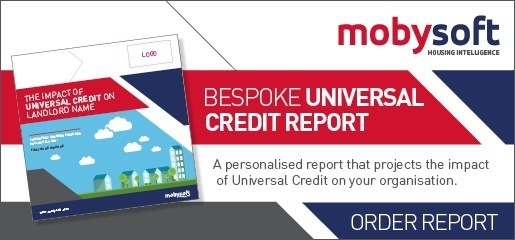Right to buy, rent reduction, benefit caps and universal credit are some of the welfare reforms that are having a huge impact on social housing. And the impact is not positive as this reform is directly affecting social housing providers’ finances and plans, such as the 1% rent reduction over 4 years whilst the introduction and roll out of universal credit is putting a substantial amount of their rent roll at risk as well as requiring additional resources to manage this roll out. Speaking to a senior manager within one Housing Association recently about the 1% reduction they commented it is not the reductions per se that’s the problem ‘it is the black holes it has created at such short notice, that rent was expected and for many already allocated’ meaning new financial plans had to planned, written and tested and then submitted to the Homes and Communities Agency for review.
At a recent National Finance Housing Conference we (Mobysoft) spoke about what this rent reduction did to a Housing Association’s (HA) 30 year plan. We calculated that cumulative black hole after 30 years, based on very conservative figures for a HA with an annual rent roll of £50m was £176.3m blackhole in a Housing Assoc Rent Roll
All this goes to illustrate that social housing providers are now operating in a new environment which requires fundamental operational reform.
Already the Government’s Housing Minister, Brandon Lewis, has suggested that Association’s should consider sharing CEO’s, albeit this was believed to be directed at smaller association’s with relatively few properties. Although this could be seen as a pre-cursor for calls for mergers or even for stronger and stable providers to take over struggling operations.
Social Housing Providers need to re-think all their operations if they are to deliver the necessary efficiency savings required to plug the shortfalls in funding the complexity of managing some welfare reform. This undoubtedly will lead to a whole raft of changes within organisations: Outsourcing may become the ‘easy’ way to save finances, but this can only go so far, and quite often leads to mixed results.
New processes can also streamline operations and central to this is technology which will be key in helping social housing providers deliver savings. However with technology it is fundamental that proposed solutions can clearly demonstrate efficiency savings that it should deliver and how quickly these can be derived. These need to be tangible in terms of pounds and pence, spare capacity created and so forth, but also accurate and achievable. If providers cannot demonstrate this from the outset perhaps housing associations et al should move on to a vendor that can, as these decisions will become critical to the success of the organisation.
So in this new era of social housing providers need to reform their operations to ensure they are financially sound and operationally efficient to meet the welfare reforms.
To find out more about RentSense follow this link. If you would like to assess the potential impact of Universal Credit on your organisation and order your own personalised report please click here.

